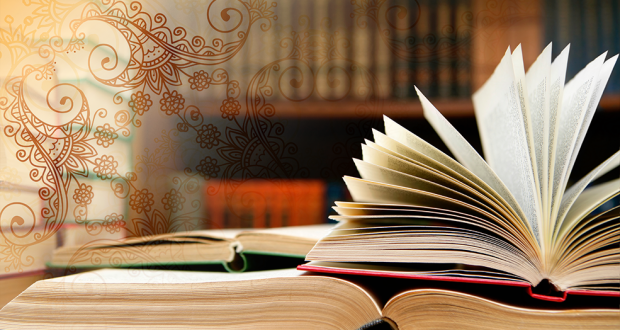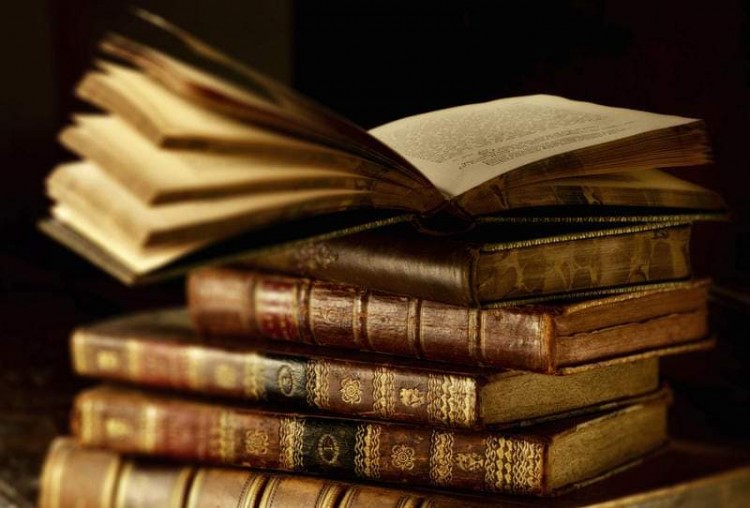4 of the Most Important Inventors in the Field of Arabic Literature

Arabic literature is a treasure trove of literary brilliance, encompassing poetry, prose, and drama for centuries. The rich legacy of Arabic literature owes much to the brilliant minds and pioneering spirits of several inventors who have greatly contributed to its development.
In this blog post, we will delve into the lives and works of four of the most important inventors in the field of Arabic literature. Join us on this journey as we explore the extraordinary contributions of these literary brilliants.
1- Al-Mutanabbi
- Al-Mutanabbi, whose full name was Abu al-Tayyib Ahmad ibn al-Husayn al-Mutanabbi, was a prominent Arab poet from the 10th century.
- He is considered one of the greatest and most influential poets in the Arabic language.
- Al-Mutanabbi composed numerous poems in his lifetime, many of which are known for their eloquence, complexity, and skillful use of language.
- His poetry covered a wide range of topics, including love, politics, praise, and satire.
Some of his most important works include:
- "Ode to the Prince": This poem is addressed to Sayf al-Dawla, a prominent ruler at the time. It portrays the poet's aspirations for an ideal ruler and emphasizes the power and importance of leadership.
- "In Praise of al-Muqtadir": This is an ode dedicated to Caliph al-Muqtadir, expressing praise for his rule and showcasing the poet's skills in composing intricate and elaborate verses.
- "On War and Its Rewards": In this famous poem, al-Mutanabbi presents his thoughts on war and the honor and glory associated with it. It reflects his perspective on the military and his admiration for victorious warriors.
- "The Descent of the Qur'an": This poem uses religious themes and imagery to glorify Arabic poetry and its power to capture the divine essence. It demonstrates al-Mutanabbi's deep understanding of Islamic theology and his ability to merge religious and literary themes.
His contributions to Arabic literature were significant and left a lasting impact on the development of poetry and literary styles in the Arabic language. Including:
- Mastery of Poetic Craft: He had unparalleled skills in both form and content, demonstrating an exceptional command of poetic techniques such as imagery, metaphors, wordplay, and rhyme.
- Elevated Language and Expressive Style: Al-Mutanabbi elevated the Arabic language and employed an eloquent and expressive style in his poetry.
- Political and Social Commentary: Al-Mutanabbi's poetry often contained political and social commentary, reflecting the turbulent times he lived in.

Read more: 10 of the Most Important Musicians in History
2- Abu Tammam
- Abu Tammam (ca. 788-845 AD) was an Arab poet and literary critic who is considered one of the greatest poets of the Abbasid era.
- He was born in Jasim, currently known as Homs in Syria, and lived during the reign of Abbasid Caliphs Al-Ma'mun and Al-Mutawakkil.
- Abu Tammam is revered for his mastery of poetic techniques and his virtuosity in classical Arabic.
- His most famous work is "al-Hamasah" (The Encouragement), an anthology of poems that celebrates bravery, heroism, and the virtues of the Arab warriors.
- "al-Hamasah" consists of over a thousand poems filled with vivid descriptions of battles, admiration of famous poets, and praise for Arab culture.
- In addition to "al-Hamasah," Abu Tammam is well-known for his "Al-Baytarah" (The Pearl Necklace), another anthology containing poems that focus on various subjects such as nature, love, and social justice.
- "Al-Baytarah" is admired for its eloquence, complex metaphors, and refined meter.
Abu Tammam made many contributions to Arabic literature, including:
- Innovations in Poetry Structure: Abu Tammam introduced new structures and innovations in the traditional Arabic poetry form, the qasida.
- Introduction of the Concept of "Hamasa": Abu Tammam also introduced the concept of "hamasa" in Arabic poetry. Hamasa refers to the virtues of courage, bravery, and heroism.
- Mastery of Wordplay and Rhetoric: Abu Tammam was renowned for his exceptional skills in wordplay, rhetoric, and linguistic elegance.
Read more: The 6 Most Influential Philosophers Throughout History
3- Ahmed Shawqi
- Ahmed Shawqi, also known as Sheikh al-Ra'is or The Prince of Poets, was an Egyptian poet, playwright, and diplomat.
- He was born on October 25, 1868, in Cairo, Egypt, and passed away on October 13, 1932.
- He played a vital role in the revival of Arabic poetry and literature, combining classical Arabic traditions with modern themes.
Some of Ahmed Shawqi's most important works include:
- "The Poem of the Nile" (Qasidat Al-Nil): This epic poem recounts the achievements and greatness of the Nile River, which is regarded as a symbol of Egypt.
- "The Song of the Glorious Light" (Qasidat Al-Isra Al-Majid): This poem glorifies the Prophet Muhammad and his miraculous journey from Mecca to Jerusalem.
- "Ahlam Al-Madina" (Dreams of the City): This play reveals the tragic condition of the Arab world under colonial rule, emphasizing the importance of education and enlightenment.
- "The Lanterns of the Tenth Night" (Misbah Al-Asharah): A collection of poetic letters between Shawqi and his friend, the prominent Egyptian playwright Tawfiq al-Hakim, reflecting their intellectual and literary values.
- "The Death of Cleopatra" (Mawt Cleopatra): A dramatic play that explores the life and death of the Egyptian queen Cleopatra.
Shawqi made several notable contributions to Arabic literature, including:
- Revival of Arabic poetry: Shawqi played a vital role in reviving the classical Arabic poetic form known as qasida.
- Modernizing Arabic literature: Shawqi introduced modern literary themes and ideas into Arabic literature.
- Nationalistic poetry: Shawqi expressed a deep sense of patriotism in his writings, emphasizing themes of nationalism and social justice.

Read more: What is Educational Technology? A Comprehensive Guide for Teachers in 2024
4- Nizar Qabbani
- Nizar Qabbani (1923-1998) was a renowned Syrian poet, diplomat, and literary figure who is widely regarded as one of the most influential and prominent Arab poets of the 20th century.
- He was known for his romantic and revolutionary poetry, tackling themes of love, politics, and Arab identity.
- Qabbani's poems were characterized by their emotional intensity, vivid imagery, and lyrical language.
- His style blended modern and traditional elements of Arabic poetry, making his work accessible and appealing to a wide audience.
Some of Qabbani's most important works include:
- "Balqis": This collection of poems, published in 1944, marked Qabbani's debut in the world of Arabic literature.
- "Diwan al-Matar" (Rain Diwan): Published in 1966, this collection reflected Qabbani's deeply emotional response to the loss of his sister in a bombing during the 1960s.
- "Diwan al-`Ashiq" (The Lover's Diwan): This collection, published in 1969, focuses on the theme of love and desire.
Qabani's contributions to Arabic Literature include:
- Modernizing Arabic poetry: He broke away from traditional themes and structures, introducing a more accessible and contemporary style of writing.
- Expressing love and passion: Qabani's poems on love, romance, and relationships challenged societal norms and taboos.
- Advocating women's rights: Qabani's poems often emphasized the strength and resilience of women, challenging traditional gender roles and societal expectations.
Read more: The 10 Most Famous Artists in the World - A Trip Through the History of Art
In Conclusion
The field of Arabic literature owes an immeasurable debt to the contributions of these four inventors. Through their innovative ideas, unique writing styles, and extraordinary creativity, they have elevated Arabic literature to new heights.
Their inventive thinking and artistic prowess continue to inspire and influence generations of writers, ensuring that Arabic literature continues to thrive and resonate with audiences worldwide.
You can visit Schoolizer to learn more about modern teaching methods and how to improve your skills to become a better teacher!
Read more: A Journey Into Mathematics - 8 Important Inventors in the Field of Math






